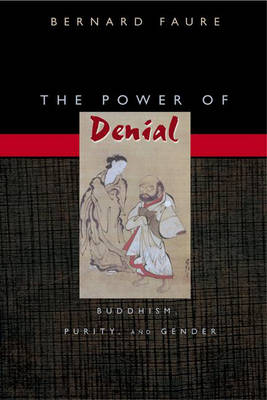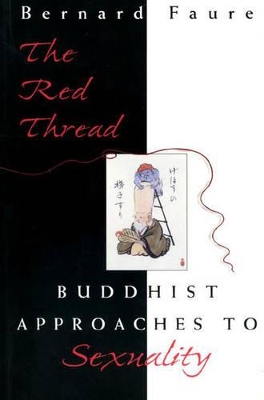Buddhisms: A Princeton University Press
2 total works
Innumerable studies have appeared in recent decades about practically every aspect of women's lives in Western societies. The few such works on Buddhism have been quite limited in scope. In "The Power of Denial", Bernard Faure takes an important step toward redressing this situation by boldly asking: does Buddhism offer women liberation or limitation? Continuing the innovative exploration of sexuality in Buddhism he began in "The Red Thread", here he moves from his earlier focus on male monastic sexuality to Buddhist conceptions of women and constructions of gender. Faure argues that Buddhism is neither as sexist nor as egalitarian as is usually thought. Above all, he asserts, the study of Buddhism through the gender lens leads us to question what we uncritically call Buddhism, in the singular. Faure challenges the conventional view that the history of women in Buddhism is a linear narrative of progress from oppression to liberation. Examining Buddhist discourse on gender in traditions such as that of Japan, he shows that patriarchy - indeed, misogyny - has long been central to Buddhism. But women were not always silent, passive victims.
Faure points to the central role not only of nuns and mothers (and wives) of monks but of female mediums and courtesans, whose colorful relations with Buddhist monks he considers in particular. Ultimately, Faure concludes that while Buddhism is, in practice, relentlessly misogynist, as far as misogynist discourses go it is one of the most flexible and open to contradiction. And, he suggests, unyielding in-depth examination can help revitalize Buddhism's deeper, more ancient egalitarianism and thus subvert its existing gender hierarchy. This groundbreaking book offers a fresh, comprehensive understanding of what Buddhism has to say about gender, and of what this really says about Buddhism, singular or plural.
Faure points to the central role not only of nuns and mothers (and wives) of monks but of female mediums and courtesans, whose colorful relations with Buddhist monks he considers in particular. Ultimately, Faure concludes that while Buddhism is, in practice, relentlessly misogynist, as far as misogynist discourses go it is one of the most flexible and open to contradiction. And, he suggests, unyielding in-depth examination can help revitalize Buddhism's deeper, more ancient egalitarianism and thus subvert its existing gender hierarchy. This groundbreaking book offers a fresh, comprehensive understanding of what Buddhism has to say about gender, and of what this really says about Buddhism, singular or plural.
In this study, Bernard Faure reveals Buddhism's paradoxical attitudes toward sexuality. His broad range covers the entire geography of this religion, and its long evolution from the time of its founder, Sakyamuni, to the premodern age. The anthropological approach uncovers the inherent discrepancies between the normative teachings of Buddhism and what its followers practice. Framing his discussion on some of the most prominent Western thinkers of sexuality - Georges Bataille and Michel Foucault - Faure draws from different reservoirs of writings, such as the orthodox and heterodox "doctrines" of Buddhism, and its monastic codes. Mythological as well as legal sources are also used. The dialectics inherent in Mahayana Buddhism, in particular in the Tantric and Chan/Zen traditions, seemed to allow for greater laxity and even encouraged breaking of taboos.

